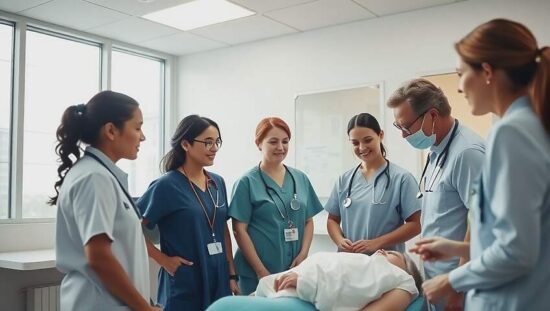Breakthrough RSV Vaccine Shows Promise for Immunocompromised Individuals, Raising Questions About Broader Access
A newly published study from Saarland University is offering a significant development in the fight against Respiratory Syncytial Virus (RSV), demonstrating a robust immune response to vaccination even in individuals with severely compromised immune systems. The findings, detailed in the “American Journal of Transplantation”, address a critical gap in existing data regarding the efficacy of RSV vaccines within vulnerable populations, particularly those undergoing transplantation or suffering from chronic kidney disease.
The research, which involved a cohort of 147 participants including 46 kidney transplant recipients, 30 lung transplant recipients and 19 patients with chronic kidney disease, contrasts sharply with the relatively limited understanding previously available concerning vaccine effectiveness in immunocompromised individuals. A control group of 52 individuals with intact immune systems was also included for comparative analysis. Researchers observed a marked increase in CD4-T helper cells and a near doubling of antibodies targeting the RSV virus across all vaccinated participants, irrespective of their pre-existing health conditions.
The revelation of the vaccine’s effectiveness in this particularly at-risk group comes at a time when broader vaccine rollout is underway, primarily focusing on older adults and infants. While the initial focus has been understandable given the significant burden of RSV in these age demographics, the new data prompts a critical examination of equitable access. Experts are now questioning whether a tiered approach to vaccination – prioritizing the most vulnerable – is the most ethically sound strategy, particularly given the resource implications of expanding the program to encompass immunocompromised individuals.
While the study emphasizes the minimal adverse effects reported, primarily limited to mild injection site pain, the complexity of managing immunosuppressant medications concurrently with vaccination protocols warrants further investigation. Concerns also linger regarding the potential long-term immunogenic effects on individuals with already weakened immune systems.
The findings represent a vital step forward in protecting highly vulnerable populations from RSV, but simultaneously introduce a new layer of political and ethical considerations that demand immediate attention from healthcare policymakers and advocacy groups. The question now becomes not just whether the vaccine “can” be administered to immunocompromised individuals, but “how” to ensure widespread access and manage the necessary clinical support to maximize its benefits and minimize potential risks.





